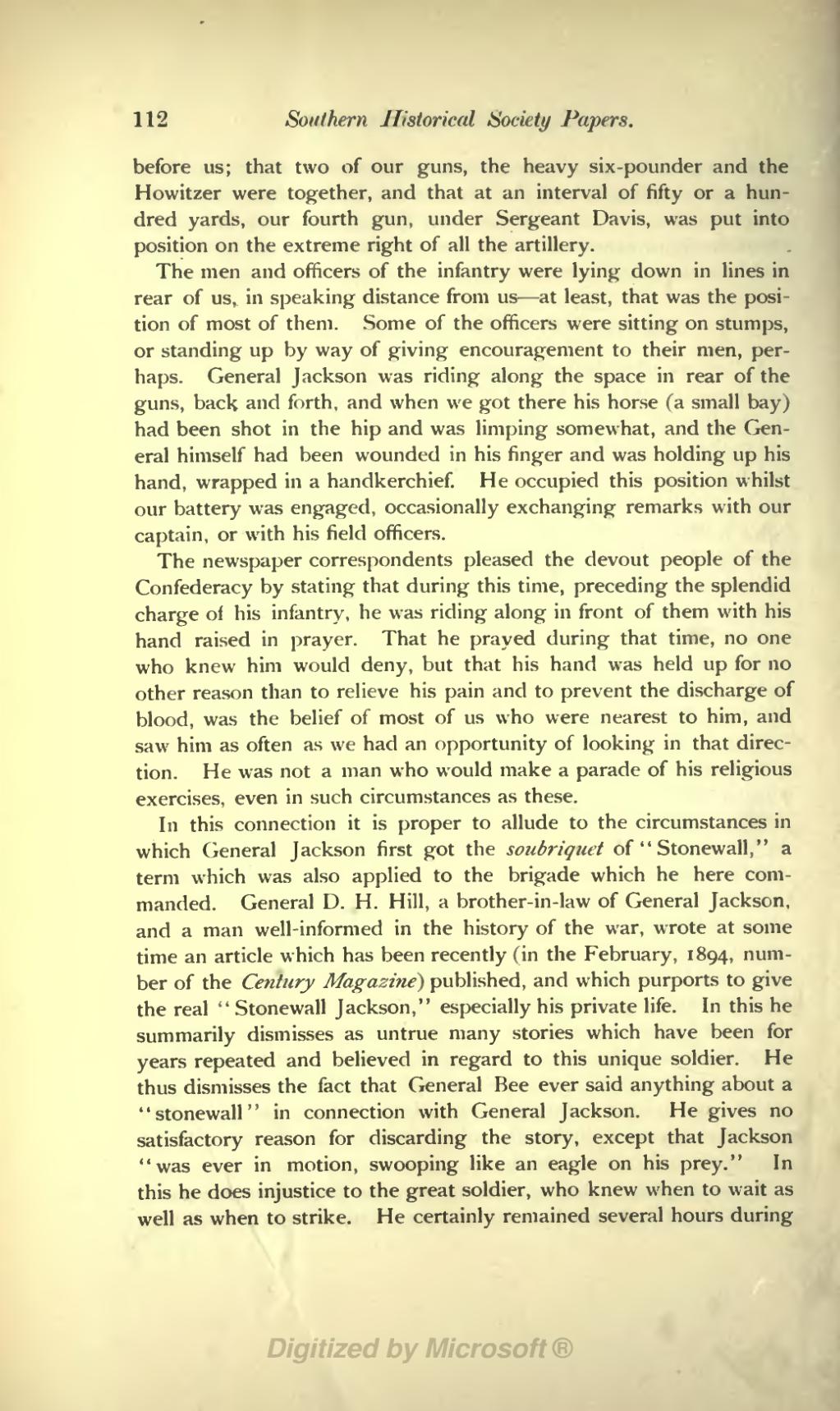112 Soul hern Historical Society Papers.
before us; that two of our guns, the heavy six -pounder and the Howitzer were together, and that at an interval of fifty or a hun- dred yards, our fourth gun, under Sergeant Davis, was put into position on the extreme right of all the artillery.
The men and officers of the infantry were lying down in lines in rear of us, in speaking distance from us at least, that was the posi- tion of most of them. Some of the officers were sitting on stumps, or standing up by way of giving encouragement to their men, per- haps. General Jackson was riding along the space in rear of the guns, back and forth, and when we got there his horse (a small bay) had been shot in the hip and was limping somewhat, and the Gen- eral himself had been wounded in his finger and was holding up his hand, wrapped in a handkerchief. He occupied this position whilst our battery was engaged, occasionally exchanging remarks with our captain, or with his field officers.
The newspaper correspondents pleased the devout people of the Confederacy by stating that during this time, preceding the splendid charge oi his infantry, he was riding along in front of them with his hand raised in prayer. That he prayed during that time, no one who knew him would deny, but that his hand was held up for no other reason than to relieve his pain and to prevent the discharge of blood, was the belief of most of us who were nearest to him, and saw him as often as we had an opportunity of looking in that direc- tion. He was not a man who would make a parade of his religious exercises, even in such circumstances as these.
In this connection it is proper to allude to the circumstances in which General Jackson first got the soubriquet of " Stonewall," a term which was also applied to the brigade which he here com- manded. General D. H. Hill, a brother-in-law of General Jackson, and a man well-informed in the history of the war, wrote at some time an article which has been recently (in the February, 1894, num- ber of the Century Magazine) published, and which purports to give the real " Stonewall Jackson," especially his private life. In this he summarily dismisses as untrue many stories which have been for years repeated and believed in regard to this unique soldier. He thus dismisses the fact that General Bee ever said anything about a "stonewall" in connection with General Jackson. He gives no satisfactory reason for discarding the story, except that Jackson "was ever in motion, swooping like an eagle on his prey." In this he does injustice to the great soldier, who knew when to wait as well as when to strike. He certainly remained several hours during
